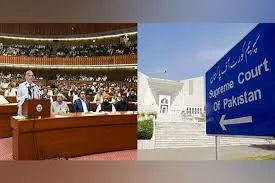Pakistan is currently facing a severe economic crisis, with its currency losing value, inflation rising, and foreign investment declining. What are the reasons behind this crisis and what can be done to overcome it?
One of the main causes of Pakistan’s economic crisis is political instability. The country has witnessed frequent changes in government, with none of them lasting a full term. The most recent example was the ousting of Prime Minister Imran Khan through a no-confidence vote in April 2022, after he lost the support of the military and some of his coalition partners1. This has created uncertainty and distrust among investors and the public, affecting the country’s economic performance.
A third cause of the crisis is the lack of fiscal discipline and transparency. The government has been spending more than it earns, resulting in a high budget deficit and public debt. The government has also been accused of corruption and mismanagement of public funds, leading to wasteful and unproductive projects. The government has failed to implement effective tax reforms and broaden its tax base, relying instead on borrowing and foreign aid.
To overcome the economic crisis, Pakistan needs to implement some urgent and long-term measures. Some of these are:
- Restoring political stability and confidence by holding free and fair elections and forming a stable and accountable government that can work with the military and other stakeholders.
- Reducing the trade deficit by diversifying its exports, improving its competitiveness, and attracting more foreign investment.
- Improving fiscal discipline and transparency by reducing wasteful spending, increasing tax collection, and ensuring accountability for public funds.
- Seeking debt relief and restructuring from its creditors, especially China, which holds a large share of Pakistan’s external debt.
- Addressing the climate emergency by investing in renewable energy sources, improving water management, and enhancing disaster preparedness.
- Pakistan’s economic crisis is not insurmountable, but it requires political will and collective action from all segments of society. If Pakistan can overcome its economic challenges, it can also improve its security situation and regional relations.












